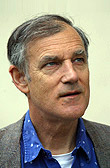| Source: Date: Updated: |
TheBahamasInvestor.com
Monday, February 6, 2012 Monday, February 6, 2012 |
Marsh Harbour, Abaco — With proposed revisions to the Financial Action Task Force, Anti-Money Laundering (FATF/AML) regime, small international financial jurisdictions (SIFJs) must be able to anticipate, influence and be ready to implement recommended changes, an international expert told local wealth managers attending a financial summit.
“Anticipating and influencing recommendation changes is important, because some of the changes may require new legislation and regulations,” said Bruce Zagaris, a partner with Berliner, Corcoran & Rowe.
Zagaris’s private practice has included monitoring international tax enforcement developments in the US and the Caribbean for foreign government and corporate clients.
He spoke Saturday at the ninth annual International Business and Finance Summit hosted by the Bahamas Financial Services Board (BFSB).
Zagaris told financial services professionals and regulators that this jurisdiction must seek to maintain a level playing field, so as not to be “unfairly penalized” when evaluators perceive that they are not properly implementing recommendations.
Until SIFJS can participate directly in the international regulatory process, the government and private sector must particpate indirectly, Zagaris said.
He suggests Caribbean SIFJS professionals try to participate through Canada via its representative at the International Monetary Fund/World Bank, in addition to reaching out to international groups like STEP (the Society of Trust and Estate Practioners), IBA (International Bar Association) and ABA (American Bankers Association).
“Continue investing in networking and training on financial regulatory and AML/CTF regulatory and enforcement skills,” recommended Zagaris, who noted the Bahamas Institute of Financial Services is an important organization with its offering of an ICA diploma in money laundering.
According to Rowena Bethel, an independent consultant specializing in tax treaty negotiations, The Bahamas is often “blind-sided” when it finds itself targeted.
The general mode of thinking then is “we’re on a list and we have to move quickly,” said Bethel, a former advisor to the Ministry of Finance and a current member of the UN Committee of Experts in Public Administration (CEPA).
“We have to develop means and mechanisms with these players very early on. There has to be ways for small states to get together and represent their own interests. At the moment, it doesn’t happen.”
tblair@dupuch.com











